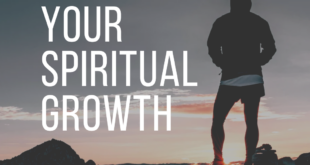RC Sproul discussed that the two fundamental questions that are most common in apologetics (to give a reason for the faith) are ‘is there a God?’ and ‘is the bible true?’ I definitely agree and I’ll provide a link to youtube with more from him on the topic. He states that he used to write ten truths that he knows are concrete about himself. So I set out to do the same and in this article. I wanted us to explore 10 truths that I know are true about myself in contemplating “is there a God?” Now, someone could argue that this is very ‘man’ centered. However, I wouldn’t have the ability to know that there is a God unless I started in my rational mind to begin to contemplate ‘is there a God?’ So I have to start in my mind in a way. So, anyway, here are 10 truths I know about Austin. I would also argue that these 10 are probably applicable to every human being in also. Part 1 will be more philosophical than biblical (exegetical would be a better word), but I want to establish the argument that there is even a possibility of a ‘god’ and then part 2 I will give reasons as to why I believe the God of the Bible is the God.
- I Exist. Descartes stated, “I think, therefore I am.” I think he was for sure on to something. I think, I have emotions, I am happy at times, I’m sad at times, I get angry at things/situations. I exist while driving to work and I can feel so many different emotions while holding my wife and daughter. I really do exist. The complexity of my emotions and human experience lead me to know I’m not just a concept that is not real or that I’m just a figment of an imagination. I really feel and experience love, hate, distress, and pain. I contemplate: What is the purpose of my existence? What was the purpose of my creation?
- I am finite. I have a beginning and end. There was a point to which Austin’s existence began (at least on earth- another topic) and to which Austin will end on earth. This isn’t anything foreign, I see it all around me. I’ve seen people and animals be born into this world and I’ve seen them both die. You see it in plants yearly. There is a beginning and end to all that we see. I also see that nothing spontaneously exists from nothing. Something can not start from nothing. If nothing spontaneously exists, where and what was the starting place of creation? What existed before a ‘creator’ or the universe causing the big bang (because technically, in order to have something before a big bang you have to have something present- nothing comes from nothing)? We will explore what the Bible says on the topic and what science says on this topic in part 2.
- I have parts of me that are good and right. There are parts of me that I feel good about and I don’t feel guilty about. There are things in my past that I regret. Regardless of what standard we are using to measure right and wrong, I feel most people could at least state there are things in which we feel good about ourselves. I see happiness and joy around me. I see it especially in my 2-year-old daughter who sees the world in such unadulterated wonder. Is there a concrete measurement for what is good and right?
- I have parts of me that are bad and wrong. On the flip side, there are things that I do feel guilty about and regret. Once again, regardless of the standard used, most people would say this is true of themselves as well. I see pain and death in our world. We catch the sense that things are not the way they should be, so we try to alter them (for instance, we prolong life as long as we can in the medical sciences). Is there a concrete measurement to define what is wrong?
- I want to see truth. I long for truth. I want to know something is stable and consistent. I don’t want to live in a reality of relativism of ‘my truth is not your truth and your truth is not my truth’ because at some point those collide with extreme conflict (if not complete anarchy and violence). Is there an objective truth that truly exists for all of mankind?
- I want to see justice for injustice. Now, again, the standard of measurement makes a difference here, but I’m talking about the in-general human longing: we want justice for injustice. Well, in that, we would have to have a standard of truth to say, “that is wrong.” But we all have this longing. This blows the doors off of relativism. Do you lock your doors of your house at night? Why do you do that? Because you’re trying to defend off a potential injustice… Where do you get that concept from?
- I have desires, wants, cravings, and longings. Whether good or bad, I have them. I want to be satisfied. I’ve also searched in so many places and have not found it (minus One). We were created that way. We long for the bliss of vacation, we long for that perfect piece of cheesecake, we love a cool drink of water on a hot summer day, a hug from a loved one, etc. What happens after we get each one of those? We want another vacation, another piece of cheesecake, we get thirsty again, etc. I see it in the world also: sex, drugs, power, esteem, careers, retirement, academic degrees, etc. It’s not that every desire/longing is wrong necessarily. But it’s a fact, we all have them in some fashion. We want to be satisfied. Is there something out there that can truly satisfy all of our needs and wants?
- I see a real concept of love. I feel something very deep when I’m with my daughter and wife that I can’t all the way explain. There are many definitions of this, but just in this context, think through that deep emotional feeling you have that you can not explain. We see it in nature, we see it in humans. Why would someone step up and take a bullet for another person without knowing them? We see such incredible compassion and selflessness that you can see from humans to other humans and how amazing and counter-Darwinian evolution this is. Darwinian evolution states that it’s all about the ‘survival of the species’ and that ‘might makes right’- so whoever I have to plow over to progress my species is right. We can justify a world of complete evil in order to make sure that the species progresses. You stand in my way, I knock you down. That’s not the case in the world we see, or at least, in some ways. Might doesn’t always make right. There are more important issues than just the ‘progress of the species.’ We know and feel this deep within us. What determines or defines this concept of love? Even a love that can be so contrary to how we are told nature is supposed to act?
- I exist in a world that doesn’t depend on me. Despite any of my efforts or whatever I do, the world keeps turning independently from me. The rivers keep flowing, the skies keep raining, the sun keeps shining- all independent of me. In the grand scheme of things, I’m not that big of a deal. Whether you call it the universe and physics, or as I call it God, we see that something bigger is determining the laws and the happenings of the cosmos independent from us.
- There is something bigger outside of me- something more. We all feel there is something more that we are a part of, whether it’s: a grander philosophical purpose, religion, climate activism, political movement/ideology, social justice movement, etc. We all know there is something bigger out there apart from ourselves that we want to be a part of. We have a desire to be a part of something more.
Would you say these would be true of you and how most people perceive the world? I believe it is applicable to all. We all want, believe, and put faith in something every day. Even if you call yourself an atheist, these desires are more than likely in you. Religion, spirituality, agnosticism, and atheism all require faith. All of these truths we have within us and desires we have point us to a truth that we are trying to find and satisfy us- a ‘god’ of some sort. In part 2, I would like to explore how I feel the God of the Bible satisfies each of those truths that I find in myself and that I believe all of humanity faces.
-Austin
 Getting Job-ed
Getting Job-ed


